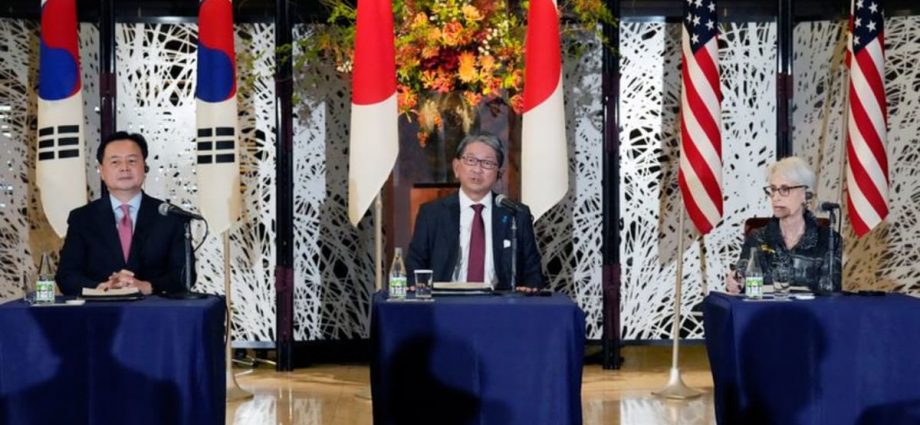
“Anything that happens here, such as a North Korean nuclear test … has implications for the security of the entire world,” she said. “We hope indeed that everyone on the Security Council would understand that any use of a nuclear weapon will change the world in incredible ways.”
When asked about the comments in Tokyo, Chinese foreign ministry spokesperson Wang Wenbin called on all the countries to acknowledge “the root causes of the long-standing impasse” over North Korea’s weapons programs and take steps to enhance mutual trust and address the concerns of all parties.
North Korea has been carrying out weapons tests at an unprecedented pace this year, firing more than two dozen ballistic missiles, including one that flew over Japan.
At a regular news briefing, Patel declined to detail how Washington would respond to a resumption of North Korean nuclear testing, but said, using the initials of the country’s official name: “We continue to have tools at our disposal to hold the DPRK accountable.”
He referred to US unilateral sanctions in response to North Korean missile launches this year, as well as joint military exercises with Japan and South Korea, which involved a US aircraft carrier for the first time since 2017.
Mori said the US, South Korea and Japan had committed to “further strengthen deterrence and response capability” and trilateral security cooperation.
On mounting tensions over Taiwan, a self-administered island China claims as its own, Sherman reiterated the US stance that it does not support Taiwan’s independence, but said it would be doing whatever it could to support Taipei and work with Japan and South Korea to ensure it could defend itself.
At a Communist Party meeting this month, Chinese President Xi Jinping called for an acceleration of plans to build a world-class military and said China would never renounce the right to use force to resolve the Taiwan issue.

